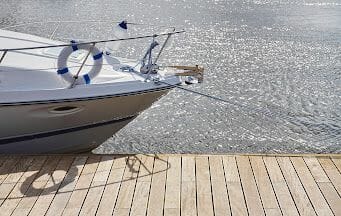Boating can be a fun and relaxing pastime, but it’s important to remember that safety should be the top priority for anyone out on the water. One of the best ways to ensure a safe experience is by educating yourself on proper boating practices and procedures. This article will explore the importance of boating education, as well as providing some tips and resources for those looking to learn more.
Why is Boating Education Important?
Boating education is essential for a number of reasons:
Safety: Knowing how to operate a boat safely and handle emergency situations is key to preventing accidents and injuries on the water.
Legal Requirements: In many countries, including the United States, boat operators are required to have a certain level of education or certification in order to legally operate a vessel.
Environment & Conservation: Boaters who are educated about environmentally-friendly boating practices can help protect and preserve our waterways and aquatic ecosystems.
Key Aspects of Boating Education
A well-rounded boating education will cover a variety of topics, including:
Boat Handling & Operation
Understanding the basic principles of boat operation is crucial. This includes learning about boat controls, propulsion systems, steering mechanisms, and how boats respond to different water conditions.
Navigation
Every boater should know how to read charts, use a compass, and understand other navigational tools like GPS. It’s also important to learn about local waterways, including nautical charts, buoys, and navigational markers.
Weather & Sea Conditions
Understanding how weather and sea conditions can impact your boating experience is essential. Boaters should be aware of weather forecasts and learn how to interpret various weather-related factors that can impact their time on the water, such as wind, waves, and tides.
Boating Rules & Regulations
Knowing the rules and regulations that pertain to boating in your area is essential for protecting yourself and others on the water. This includes speed limits, right-of-way, and other important navigational rules.
Risk Management & Emergency Procedures
Boaters should be well-versed in risk management strategies, including how to prevent and respond to common boating risks such as capsizing, running aground, and collision. Additionally, boaters should know basic emergency procedures, including how to use a lifejacket, communicate distress signals, and administer first aid.
Environmental Stewardship
As boaters, it is our responsibility to minimize our impact on the aquatic environment. This includes learning about proper waste disposal, using environmentally-friendly products and practices, and being mindful of sensitive areas like coral reefs and sea grass beds.
Methods to Obtain Boating Education
There are numerous resources available for individuals interested in obtaining boating education. Here are some popular methods:
Boating Courses & Workshops
A variety of organizations offer boating courses and workshops, ranging from basic boating safety courses to advanced navigation classes. Examples include the United States Coast Guard Auxiliary, U.S. Power Squadrons, American Sailing Association, and Royal Yachting Association.
Online Learning
Online boating courses can be a convenient way for individuals to learn at their own pace. There are numerous organizations that offer remote boating education courses, including some with interactive components and quizzes. Examples of online boating courses include BoatUS Foundation, BoatersEd, and the National Association of State Boating Law Administrators (NASBLA).
Books & Manuals
There are many books and manuals available that cover a range of boating topics, from navigation to emergency procedures. Examples include “Chapman Piloting & Seamanship,” “The Annapolis Book of Seamanship,” and “The American Red Cross First Aid/CPR/AED Participant’s Manual.”
Hands-On Training & Experience
While classroom and online courses can provide a solid foundation, there’s no substitute for hands-on experience. Whenever possible, new boaters should seek opportunities to gain practical experience under the supervision of an experienced boater, such as a friend or a certified instructor.
Conclusion
Boating can be an enjoyable and rewarding pastime, but proper education is essential for maintaining safety on the water. By learning about boat operation, navigation, weather, rules and regulations, risk management, and environmental stewardship, boaters can increase their confidence and skill level, leading to safer and more enjoyable experiences on the water. Whether you’re just starting out or looking to improve your skills, there are numerous educational resources available to help you become a knowledgeable and responsible boater.


